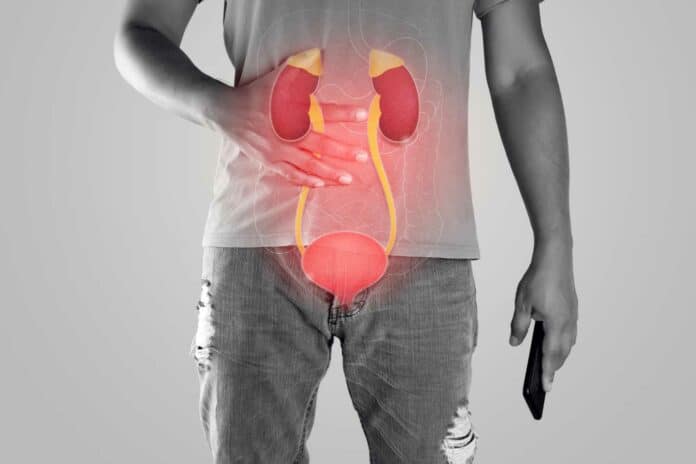A recent study led by the University of Bristol tested a new treatment for men with urinary problems in GP offices. The results, published in the British Medical Journal, showed a lasting improvement in symptoms. The TRIUMPH study, funded by the National Institute for Health and Care Research, involved over 1,000 participants and 30 GP practices.
As men age, the likelihood of experiencing lower urinary tract symptoms (LUTS) increases, affecting up to 30% of those over 65. These symptoms can impact quality of life and are influenced by lifestyle. NICE recommends therapies like bladder training, fluid control, and lifestyle advice.
However, their effectiveness needs clear evidence, and GP practices offer varying support. Bristol Medical School researchers tested a new approach involving a healthcare consultation and an informative booklet to see if it could be more effective than standard care.
The team enrolled 1,077 men experiencing urinary tract symptoms from June 2018 to August 2019. Half received the new intervention, and the other half received the usual care. Those in the intervention group were guided through an informative booklet by healthcare professionals, with follow-up over 12 weeks to check progress.
Using a standardized approach, the study found that troublesome urinary symptoms improved in men with moderate severity over 12 months. The intervention group showed a more significant reduction in symptoms compared to usual care, and this improvement was sustained over time.
Consultant Urologist Professor Marcus Drake, the study’s Chief Investigator, who carried out the study while Professor of Physiological Urology at the University of Bristol and Honorary Consultant Urologist at Southmead Hospital, said: “The assessment of male lower urinary tract symptoms and use of conservative treatments in primary care is inconsistent. Until now, there was limited evidence that conventional treatments are effective, despite their recommendation in national guidelines. The TRIUMPH study aimed to address this need in primary care.”
“Implementation of this intervention as management in primary care has the potential to improve care and reduce drug prescriptions. Our study also found the intervention can be delivered by practice nurses or healthcare assistants rather than GPs.” He added.
Dr. Jon Rees, GP Partner at Tyntesfield Medical Group and Chair of the Primary Care Urology Society, commented, “In primary care, we’ve often relied on medications for men with urinary symptoms. The TRIUMPH study highlights the importance of discussing conservative measures with these patients.”
These measures may be sufficient for some, while others can complement prescribed medications. Many men may prefer to avoid long-term medication, so understanding the potential benefits of the interventions used in the study is crucial for clinicians managing these patients.
In conclusion, the TRIUMPH study from the University of Bristol has unveiled a novel intervention for male urinary problems, showcasing promising results in symptom reduction. With findings published in the British Medical Journal and the involvement of over 1,000 participants across 30 GP practices, this research contributes valuable insights into managing urinary symptoms in men, potentially offering a more practical approach to improve patient outcomes and quality of life.
Journal reference:
- Marcus J Drake, Jo Worthington, et al., Treatment of lower urinary tract symptoms in men in primary care using a conservative intervention: a cluster randomized controlled trial. BMJ. DOI: 10.1136/bmj-2023-075219.
